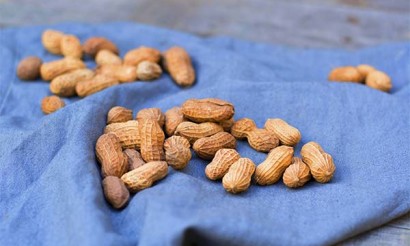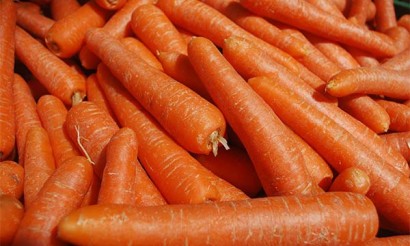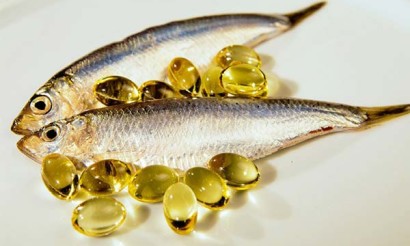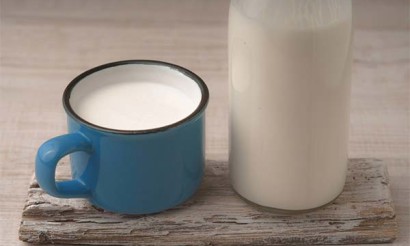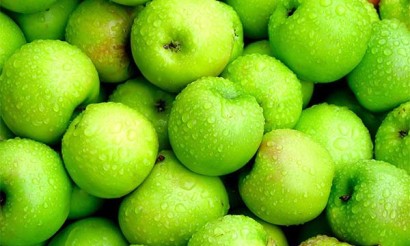Sesame in breastfeeding: benefits and harms
- Can I eat sesame while breastfeeding
- The first month
- In the second month
- How to properly eat sesame
- How much you can eat per day.
- Can I eat sesame seeds at night and on an empty stomach?
- The benefits of sesame seeds during breastfeeding
- What seeds are more useful: white or black.
- What are the dangers of sesame seeds during lactation?
- How to include sesame seeds into a breastfeeding mother's diet
- Rules of choice and storage
During the breastfeeding period, most women are picky about every ingredient when forming their nutrition program. Afraid of harming the baby, they resolutely refuse many healthy foods. For example, sesame seeds, which have a unique composition, and therefore are very useful for the mother and the growing baby, are unfairly included in the blacklist.
Cute little grains of the most ancient oilseed crop have fabulous healing properties. It is not by chance that one of the names of this annual herbaceous plant "sim-sim" reminds of a magic spell from a famous Arabic fairy tale, which opened all the doors. Sesame seeds, too, can work wonders if used correctly. Let us share the secrets of the rational use of the seeds of the exotic plant during breastfeeding, what dishes they should be added to, how to choose a quality product.
Can I eat sesame when breastfeeding?
Unfortunately, most mothers in our country are deprived of the opportunity to observe the process of ripening of small boxes with tasty seeds, which are in demand in the pharmaceutical, cosmetics and food industries. Most often the natural product can be seen on the shelves of stores in transparent bags. Small seeds are used to decorate confectionery, added to bread and sweets. In a word, sesame is not an exotic delicacy for our compatriots, especially in the southern regions of Russia it is successfully grown in industrial quantities. Therefore one can buy sesame, as sesame seed is also often called, in almost any supermarket. For nursing moms during the recovery period after pregnancy and childbirth, sesame seeds can be of great benefit, as each seed is a treasure trove of minerals and vitamins.
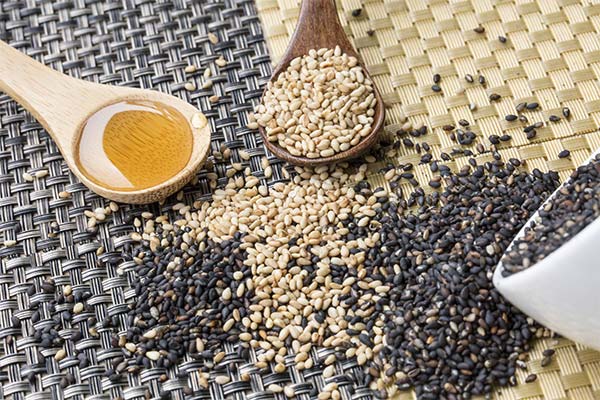
Sesame seeds stimulate lactation and improve the quality of breast milk. The product is absolutely safe for the baby (if properly introduced into the diet), has a whole complex of healing properties. Nutritionists and pediatricians are unanimous in their opinion that sesame must be present in the diet of any breastfeeding woman.
The only obstacle to the use of this delicacy is the presence of contraindications in the child or mother. But about this a little later. And now let's deal with the question of what time is optimal for the inclusion of sesame seeds in the diet of a woman.
In the first month
During pregnancy, the resources of the female body are significantly depleted. Bone tissues and teeth especially need to replenish calcium reserves. Although this mineral, as well as many other useful substances, is contained in excess in sesame seeds, in the first month after childbirth should not be used because of the risk of harming the baby.
The fact is that the baby's digestive system in the first weeks of life is not yet able to process complex food. The baby's body is still in the process of forming all the important systems, and the gastrointestinal organs are not able to produce the necessary amount of digestive enzymes. Therefore, in the first months after birth, the mother must follow a strict diet.
In the second month
A two-month-old baby begins to show activity, he already recognizes his mother and smiles at her. But the little immature body is still only gaining strength. So he needs his mother's protection and safe food. Since the whole diet of the baby consists only of breast milk, with it the baby gets everything he needs for growth and development. During this period, the baby is not yet ready for changes in the menu of the mother, so the introduction of any new product, including sesame seeds, is completely excluded.
How to Use Sesame
The most convenient time for the appearance of sesame in the diet of a nursing woman is three months after childbirth. By this time the baby is fully adapted to its environment and its digestive system will be able to accept and process more complex foods. Sesame is considered an ideal source of vitamins and minerals. Rich in calcium content, this natural product will help a new mother recover quickly after childbirth. The nutrients that come with mother's milk will stimulate the physical and mental development of the baby. There are many ways to use sesame seeds, because they can be
- add them to salads;
- eat them pure;
- put them in meat dishes;
- use them in baked goods;
- to be consumed in processed form.
It is worth paying attention to the last item on this list. We are talking about sesame oil, which is widely used in cooking to dress salads or prepare main dishes. Small portions of the natural product will not impair the taste of breast milk, but will have a positive effect on the young mother's digestion and intestinal function, which is very important in the first months after childbirth. Pediatricians recommend that you start with sesame oil, because this option reduces the risk of babies developing allergic reactions.
It is useful to know: In addition to its high nutritional value, sesame seed oil has the property of improving the condition of the skin, hair and nails. Therefore, a woman will be able to use the useful product for home cosmetic procedures.
How much can be eaten per day
Now regarding the norms of consumption. Of course, sesame seeds are among those types of delicacies, the taste of which you want to enjoy endlessly. But a breastfeeding mother will have to keep herself within the limits of the proper norms. Whole sesame seeds can be eaten daily after the baby gets used to them. But the daily dose should not exceed a teaspoon. Just a few grains will be enough to start with. The same amount of product can be added to various dishes.
The daily dose of sesame oil should not exceed a tablespoon. This norm should be adhered to with any kind of consumption of the natural product.
Can I eat at night and on an empty stomach?
Experts do not recommend eating raw sesame seeds on an empty stomach, as this can provoke nausea or heartburn. And sesame oil can be taken on an empty stomach if there are problems with digestion. But we must not forget that the product can cause intestinal upset in the baby. For better digestion by the digestive system, it is better to soak the oilseed overnight, and in the morning eat it after breakfast or add it to other dishes. At night you should not burden the stomach with such a complex food. But if we are talking about salad dressing, this option is not excluded.
The benefits of sesame in breastfeeding
Archaeological excavations have confirmed that in ancient times people successfully grew sesame for its further use in food. Sesame became famous for its unique healing abilities. Throughout its centuries-long history, the little fruits of the tropical plant have not lost their qualities. That is why supporters of natural nutrition show interest in this gift of nature. After all, each little kernel is concentrated full complex of nutrients, which are needed by the body of a woman and a growing baby. Here is a list of the main components of the composition:
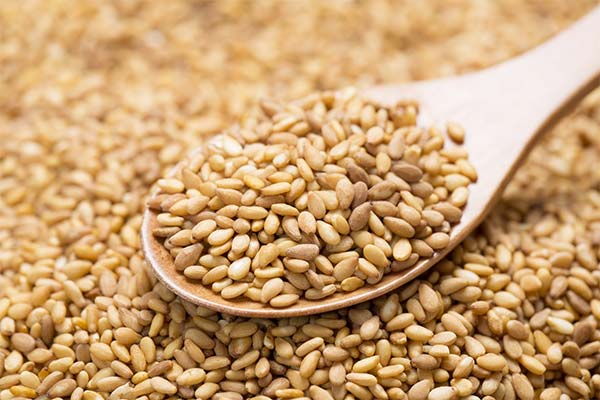
- Calcium. Sesame is considered a record-breaker in content of this mineral. Moreover, it contains easily digestible calcium, which is well absorbed by the mucous membranes of the gastrointestinal tract, and then goes to the bone tissues.
- Copper. It actively participates in the process of hematopoiesis and is responsible for the production of red blood cells - red blood cells. It also regulates the breakdown of fats and strengthens the immune system.
- Manganese. Necessary for muscle tissues and to maintain normal hormonal background in women.
- Potassium. Regulates the water-alkaline balance, and is also necessary for normal cardiac function.
- Phosphorus. Necessary for the formation of the bone skeleton and energy production.
- Zinc. Chief participant in the synthesis of proteins and sex hormones. The element promotes the absorption of vitamin E, improves skin.
- Iron. The main function of this important mineral is to transport oxygen to the tissues. The hemoglobin content depends on the level of iron. This element regulates cholesterol levels and participates in metabolic processes.
- B vitamins. Necessary to maintain the normal functioning of the nervous system, are involved in building muscle tissues, ensure the health of the hair and skin.
- Vitamin C. Strengthens the protective barrier, stabilizes cholesterol levels.
- Retinol. It is an essential player in the synthesis of important proteins, strengthens vision. Vitamin A has a powerful antioxidant effect, preventing early aging of the skin.
- Calciferol. Promotes the absorption of calcium and phosphorus, which helps to strengthen bone tissues.
- RR vitamins - niacin and nicotinic acid. These substances prevent the formation of cholesterol plaques, reduce the level of lipoprotein and triglycerides - substances that are harmful to the cardiovascular system. In addition, nicotinic acid is involved in the synthesis of essential amino acids and converts sugar and fat into energy.
- Fiber. Improves intestinal motility, which ensures regular stools.
Well-balanced composition of sesame seeds has a beneficial effect on the female body. Therefore, experts believe that this natural product can be considered an ideal source of vitamins and mineral elements during breastfeeding. Even small portions of sesame seeds will help to recover mom after childbirth, as well as promote the active growth and harmonious development of the baby.
Each small seed hides a huge power, because sesame has these useful properties:
- strengthens the immune system;
- Stimulates the gastrointestinal organs;
- cleanses the body of toxic products;
- prevents development of rickets in a child;
- strengthens the structure of blood vessels;
- has a positive effect on the heart;
- Improves the condition of the nervous system;
- Is characterized by anticarcinogenic activity;
- stimulates lactation;
- balances blood pressure;
- promotes dynamic weight loss;
- accelerates metabolism;
- strengthens teeth and bones;
- normalizes blood composition.
Sesame seeds contain components with anti-inflammatory effects. Therefore, regular use of the product reduces the risk of mastopathy in women. But the main advantage of small seeds is that they, due to their high fat content, increase the nutritional value of breast milk.
An important point: Sesame seeds have a very high energy content - 600 kcal. Therefore, they should not be carried away, so as not to get the opposite effect.
Which seeds are more useful: white or black?
Domestic consumers are used to milk-colored sesame seeds, because this variety more often appears on the shelves of our stores. But sesame is characterized by a variety of varieties, which is reflected to some extent in their composition and color. Let's consider the most common color shades:
- Black seeds. They are considered to be the healthiest, as dark sesame seeds have a high concentration of minerals. Dark sesame seeds have a pleasant nutty taste and are often added to baked goods. Black sesame is in demand in cosmetology as it contains nourishing oils which rejuvenate the skin. This variety is also in demand in the pharmaceutical industry.
- White sesame is the ground seeds. Such a product is inferior in many respects to its dark opponent. It is mainly used for garnishing confectionery products.
There are also red and yellow varieties of sesame seeds. The variety of colors can be explained by the peculiarities of the sesame varieties' composition: the darker the seeds, the richer the composition and the more pronounced is the exotic product's flavor.
It is easy to guess that it is more useful for nursing mothers to eat black sesame seeds, which will saturate tissues with necessary elements. Not only do they have high nutritional value, but they are also good for the thyroid gland, as they contain large amounts of iodine.
What are the dangers of sesame seeds during lactation
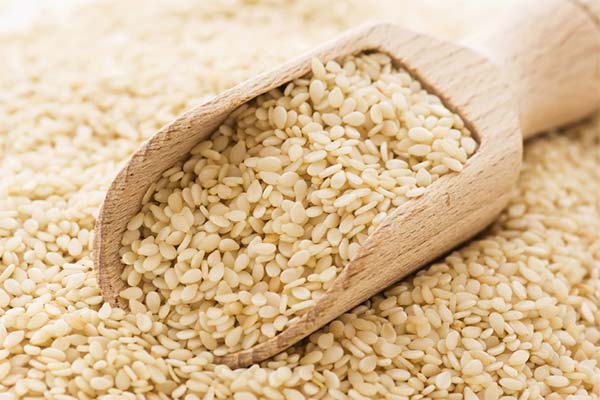
Although sesame seeds are considered a safe product for the baby and the nursing woman herself, they have their own disadvantages. Mostly side effects are observed when abusing this caloric product. Such negative reactions are manifested in the form of:
- skin allergies;
- intestinal colic in the baby;
- digestive disorders.
But even with the normal use of sesame seeds is not excluded the occurrence of undesirable complications. Therefore, before introducing the seeds in your daily diet mommy should consult with your doctor. Perhaps because of her health condition she can not use sesame seeds. The list of contraindications includes:
- Individual intolerance.
- Increased blood clotting.
- Thrombophlebitis.
- Digestive reflux in the baby (the release of stomach contents back into the esophagus, i.e. regurgitation).
- Diseases of the liver and kidneys in the mother.
- Past surgeries (women after a C-section are not recommended to consume sesame seeds and oil).
In addition, sesame must not be combined with the consumption of products that contain oxalic acid, as such an alliance can provoke the appearance of stones in the organs of the urinary system.
Warning: Uncontrolled consumption of sesame seeds by a nursing woman can lead to early closure of the fontanelle in the baby.
How to properly introduce sesame into a nursing mother's diet
After getting acquainted with the features and useful properties, you can begin to study the rules of safe introduction of the product in the diet of a young mother. This algorithm is recommended to adhere to exclude the possibility of developing side effects in the baby.
So, if you want to decorate your menu with a small portion of sesame, a woman should adhere to the following rules:
- Expand the diet when the baby reaches three months of age. Before that, you can't do this for the reasons mentioned above.
- Introduce a new product, starting with a few grains. Before that, be sure to consult with your pediatrician, perhaps the child's health condition, he will consider it dangerous to introduce sesame seeds in the diet of the mother.
- After the first test 48 hours to watch the baby: if his condition remains unchanged, in two days you can repeat the test.
- Increase the dose of the product gradually, bringing the portion to a full teaspoon. But the allowable daily dose of seeds should not exceed 20 g, and oil - 1 tablespoon.
- For better absorption of the product by the body, it is recommended to soak the seeds overnight. When consuming the product in its pure form, the seeds should be chewed long and thoroughly until they become a liquid mush. In this state, sesame seeds will be quickly processed by the digestive system and the nutrients will enter the breast milk.
- You can add 1 teaspoon daily to reach an acceptable rate.
- You should not introduce sesame and any other food item into a breastfeeding woman's diet at the same time.
- If you want to add sesame oil to the food for flavoring, you should remember that the natural product loses most of its useful components during heat treatment.
- Sesame oil is introduced into the diet according to a similar scheme, but the difference is that negative reactions can appear in a few hours after the first tasting.
Reminder: A nursing woman should remember that in her position it is better to undereat than overeat. This rule should become the law for the entire period of lactation.
Rules for selection and storage
Sesame seeds are a very valuable product. They are often included in the dietary diet of those weakened by serious illness. Although childbirth is considered a normal physiological process, a woman's body after such a serious ordeal needs to recover. The growing baby also needs nutrients for harmonious growth and development. But the maximum benefit of sesame seeds will be able to extract only with the right choice of product. Therefore, let us pay a little attention to the criteria that should be paid attention to when buying such a product:
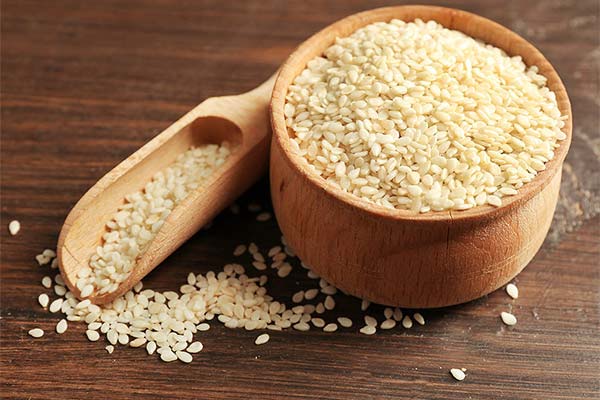
- Purchase sesame seeds from proven sellers.
- Both sesame seeds and sesame oil, do not buy in large quantities, as it is a perishable product. The seeds become bitter when stored for long periods of time.
- When choosing oil, give preference to products in glass containers, because you can visually assess the quality, color and presence of impurities.
- Packaged goods should have all the information on the label about the composition, manufacturer, and expiration date.
- If the store products have flavorings, colorings and other chemical components, you should refuse to buy such products.
- Only cold-pressed sesame oil is suitable for a nursing mother's diet.
- If you buy it packed in bags or jars you can warm sesame seeds at home in a microwave oven at 50°C. A few minutes of this cooking will reveal the true flavor of the product.
How to determine the quality of sesame seeds
A good quality product can easily be identified by its appearance:
- Unroasted fresh sesame seeds are crumbly. They have a pleasant aroma and a white or slightly creamy color. If stored for a long time, the seeds begin to turn yellow intensely, indicating that they are of poor quality.
- Sesame grown in Asian countries leaves a sweet aftertaste in the mouth. The other varieties have a neutral flavor. The product that has gone through the roasting process will be very bitter.
- The product has an unpleasant aroma when stored for a long time and with a high level of humidity. You can identify the flavor by rubbing a few grains with your fingers.
It is best to store sesame seeds in a glass container with an airtight lid. The container should be placed in a dry, dark place. You can also use a container for storage. Some lovers of the natural product store it in the freezer.
Warning: Sesame seed retains its useful qualities for only three months after harvesting. Given this fact, you should always buy seeds and oil in small quantities.
Conclusion
Close acquaintance with the exotic culture with the fabulous name "sesame" allowed to learn about the unique composition and useful properties, which should be used by young mothers during lactation. But to appreciate the truly beneficial effect of miniature seeds on the body is possible only with the rational use of the product. If you follow the simple rules described here, both the mother and the growing baby will receive tremendous benefits from such a supplement. But before starting the gastronomic experience, it is still worth enlisting the support of experts. There are many interesting recipes that a woman can safely use, without fearing for the health of the baby. For example, fresh seeds can be added to porridge, homemade pastries or light salads. Even such simple dishes will decorate a woman's diet.
«Important: All information on the site is provided solely for introductory purposes. Consult a specialist before applying any recommendations. specialist. Neither the editors nor the authors are liable for any possible harm caused by materials."

